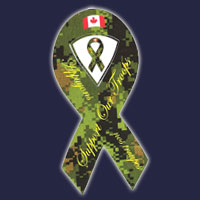This was first posted on Michael Yon's sight. This letter from General Petraeus deserves the widest possible dissemination. It applies to Canadians as well as Americans in this valiant fight. It should be published widely, and posted on every headquarters wall, and read aloud by every troop in Iraq and Afghanistan. We can pummel al Qaeda and other terrorists mercilessly and grind them into the dirt, but we cannot afford to turn local populations against us while we do it.
From General Petraeus:
Soldiers, Sailors, Airmen, Marines, and Coast Guardsmen serving in Multi-National Force-Iraq:
Our values and the laws governing warfare teach us to respect human dignity, maintain our integrity, and do what is right. Adherence to our values distinguishes us from our enemy. This fight depends on securing the population, which must understand that we—not our enemies—occupy the moral high ground. This strategy has shown results in recent months. Al Qaeda’s indiscriminate attacks, for example, have finally started to turn a substantial proportion ofthe Iraqi population against it.
In view of this, I was concerned by the results of a recently released survey conducted last fall in Iraq that revealed an apparent unwillingness on the part of some US personnel to report illegal actions taken by fellow members of their units. The study also indicated that a small percentage of those surveyed may have mistreated noncombatants. This survey should spur reflection on our conduct in combat.
I fully appreciate the emotions that one experiences in Iraq. I also know first hand the bonds between members of the ” brotherhood of the close fight. ” Seeing a fellow trooper killed by a barbaric enemy can spark frustration, anger, and a desire for immediate revenge. As hard as it might be, however, we must not let these emotions lead us—or our comrades in arrns—to commit hasty, illegal actions. In the event that we witness or hear of such actions, we must not let our bonds prevent us from speaking up.
Some may argue that we would be more effective if we sanctioned torture or other expedient methods to obtain information from the enemy. They would be wrong. Beyond the basic fact that such actions are illegal, history shows that they also are frequently neither useful nor necessary. Certainly, extreme physical action can make someone “talk;” however, what the individual says may be of questionable value. In fact, our experience in applying the interrogation standards laid out in the Army Field Manual (2-22.3) on Human Intelligence Collector Operations that was published last year shows that the techniques in the manual work effectively and humanely in eliciting information from detainees.
We are, indeed, warriors. We train to kill our enemies. We are engaged in combat, we must pursue the enemy relentlessly, and we must be violent at times. What sets us apart from our enemies in this fight, however, is how we behave. In everything we do, we must observe the standards and values that dictate that we treat noncombatants and detainees with dignity and respect. While we are warriors, we are also all human beings. Stress caused by lengthy deployments and combat is not a sign of weakness; it is a sign that we are human. If you feel such stress, do not hesitate to talk to your chain of command, your chaplain, or a medical expert.
We should use the survey results to renew our commitment to the values and standards that make us who we are and to spur re-examinat ion of these issues. Leaders, in part icular, need to discuss these issues with their troopers—and, as always, they need to set the right example and strive to ensure proper conduct. We should never underestimate the importance of good leadership and the difference it can make.
Thanks for what you continue to do. It is an honor to serve with each of you.
David H. Petraeus,
General, United States Army
Commanding
Tuesday, May 15, 2007
Subscribe to:
Posts (Atom)


